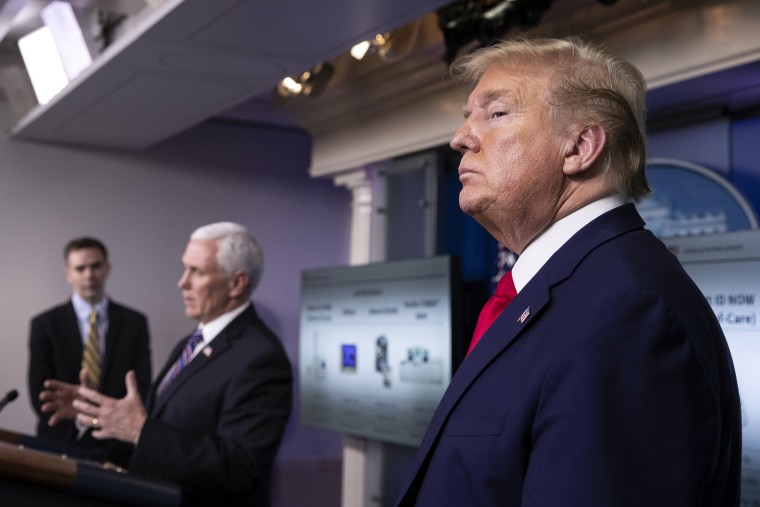WASHINGTON — President Donald Trump cited public health concerns and the economy as reasons to suspend immigration into the U.S. in his tweet Monday night announcing the move.
"In light of the attack from the Invisible Enemy, as well as the need to protect the jobs of our GREAT American Citizens, I will be signing an Executive Order to temporarily suspend immigration into the United States!" he wrote.
Can the president do that? The answer appears to be yes. Any such sweeping action is bound to produce court challenges, but it's not at all clear that they would succeed.
Andrea Flores of the American Civil Liberties Union, for one, condemned the plan, saying Trump "seems more interested in fanning anti-immigrant flames than in saving lives. We cannot allow President Trump to exploit this pandemic to advance his racism and xenophobia.”
But the president would probably cite the same legal authority that he used to justify his March 11 executive order restricting entry by travelers from countries coping with the pandemic; it's a provision of federal law — the Immigration and Nationality Act — that gives a president very broad power.
Full coverage of the coronavirus outbreak
"Whenever the president finds that the entry of any aliens or of any class of aliens into the United States would be detrimental to the interests of the United States, he may by proclamation, and for such period as he shall deem necessary, suspend the entry of all aliens or any class of aliens as immigrants or nonimmigrants," the statute says.
Federal courts have said that language places very few limits on the president's authority to restrict entry to the U.S. The law says nothing about what factors a president should consider or how long a suspension should last. The most recent Supreme Court ruling to consider the provision came in 2018, when the court upheld the third iteration of Trump's order restricting entry of travelers from several Muslim countries. The court said the statute "exudes deference to the president in every clause."
The travel order's challengers argued that the president had to justify any attempt to restrict immigration so it could be reviewed by the courts. But the Supreme Court said, "That premise is questionable." Even if some form of judicial review is appropriate, the court said, Trump's extensive findings backing up the revised travel ban were sufficient.
The court also noted that in the past, presidents have offered very little in the way of justification for invoking the statute. President Bill Clinton, for example, explained in one sentence why he suspended entry of Sudanese government and military officials in 1996, saying simply that it was "in the foreign policy interests of the United States."
Nor, the Supreme Court said, is the president required to say in advance how long a suspension of immigration would last. All this suggests that the more justification Trump offers in his executive order, the easier time he'll have in court when the inevitable challenges arise.
Download the NBC News app for full coverage and alerts about the coronavirus outbreak
Steve Vladeck, a professor at the University of Texas School of Law, said the strength of the legal challenges will depend on how broadly the order is worded — whether it applies to lawful permanent residents (green card holders) and others with current immigration statuses or only to people with no previous connections to the U.S. "That’s what got the first two versions of the travel ban in so much trouble," he said.
Such a sweeping use of the power would likely trigger a nationwide injunction from a federal judge who might consider the executive order excessively political and too divorced from U.S. interests. Tom Goldstein, a Washington, D.C., lawyer who argues frequently before the Supreme Court, said that if that happened, the Trump administration would undoubtedly rush to the justices, arguing that a single federal judge shouldn't be able to block the executive order's enforcement in the entire United States.

